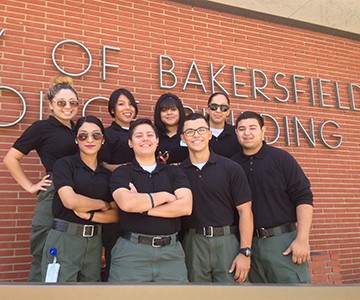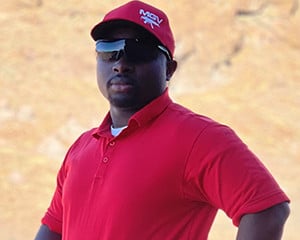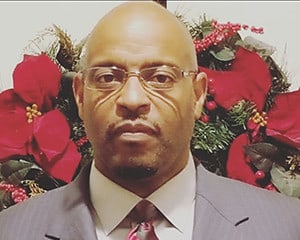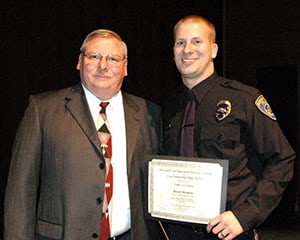Criminal Justice students get close up with crime scene procedures
 SJVC’s Criminal Justice: Corrections program students got to get up close and personal with those in charge of working a crime scene when they visited the Bakersfield Police’s Crime Scene Department a few weeks ago.
SJVC’s Criminal Justice: Corrections program students got to get up close and personal with those in charge of working a crime scene when they visited the Bakersfield Police’s Crime Scene Department a few weeks ago.
“During our visit, the Crime Scene Technicians demonstrated crime scene and fingerprint processing and preservation, as well as analyzing and entering prints in the Automated Fingerprint System,” says Bobby Stratton, Criminal Justice: Corrections instructor.
New technology that any CSI show might showcase includes a 3-D crime scene laser scanner that is used to document crime scenes. The 3-D computer images can be used by investigators and for future court presentations.
Criminal Justice student Bianca Ramirez enjoyed the new fingerprint technology. “Sometimes a print isn’t visible to the naked eye and you can’t see it just using the powder. They have a paste they use that can make the fingerprint visible and equipment that shows more detail,” she says.
The technology of crime scene processing has grown tremendously in the last few years, perhaps in part in response to television shows that have popularized forensic sleuth-work.
“This made me realize that this is very interesting work and something I really want to do in my life,” says Bianca. “It’s an option that would be cool to do.”
The two-hour visit to the Crime Scene Unit also gave students a good look at the importance of teamwork. “We saw a team of officers talking and preparing for a raid,” says Jose Ruiz, Criminal Justice: Corrections student. “Undercover officers gave us a quick ‘hi’ when we passed by.”
His glimpse into the inner workings of a tight team made a positive impression on Jose. “They were so organized and prepared. I got to have a deeper look inside how it runs, a look behind the curtain.”
The CSU (Crime Scene Unit) answered all of the students’ questions with thorough explanations, and provided lots of detail about their laboratory procedures.
“I love it. This is what I want to do with my life,” says Jose, who, like Bianca, graduates in November.
“Seeing the subjects we discuss in class being used in a real-life application helps the student understand their importance and gives them real world purpose,” says Mr. Stratton, “and shows them the wide spectrum of employment opportunities.”
Learn More About A Career In Criminal Justice: Corrections
Criminal Justice: Corrections can open doors to work in private, state, federal prisons or local jails as well as in private security in California. Learn how to join this exciting career and why you should pursue a correctional officer degree.
You might also like
More stories about
Request Information
All fields using an asterik (*) are required.


